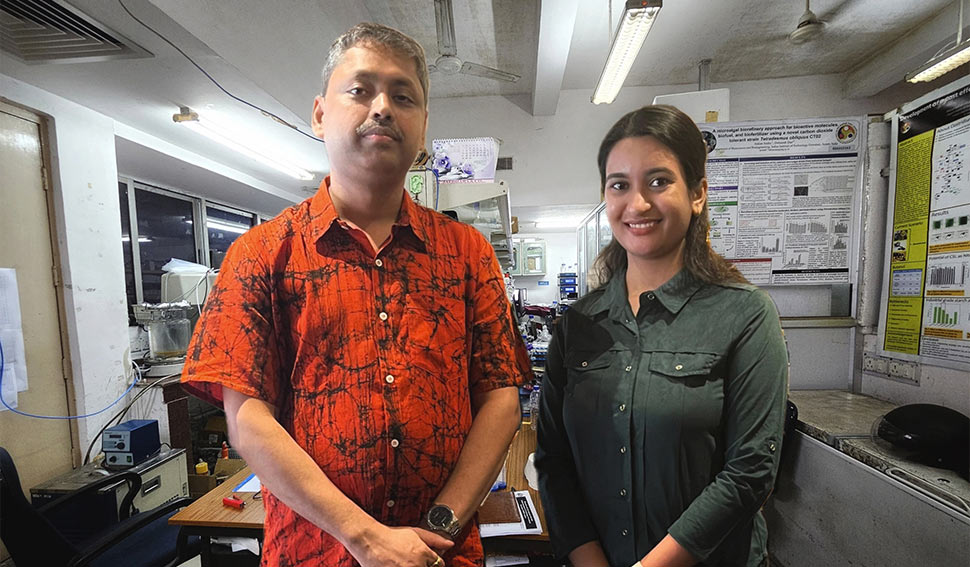IIT Guwahati pioneers technology to convert methane and carbon dioxide into eco-friendly biofuel

Researchers at the Indian Institute of Technology Guwahati (IIT-G) have achieved a significant breakthrough in sustainable energy by developing a biological method to transform methane and carbon dioxide into cleaner biofuels using methanotrophic bacteria. This cutting-edge approach marks a major step forward in tackling climate change and the global energy crisis.
The research, co-authored by Prof. Debasish Das and Dr. Krishna Kalyani Sahoo, Department of Biosciences and Bioengineering, IIT Guwahati, has been published in Fuel, a leading journal by Elsevier. The study addresses two pressing global challenges: the harmful environmental impact of greenhouse gases and the depletion of fossil fuel reserves.
Methane, a greenhouse gas 27-30 times more potent than carbon dioxide, significantly contributes to global warming. While turning methane and carbon dioxide into liquid fuels can reduce emissions and provide renewable energy, existing chemical methods are energy-intensive, expensive, and produce toxic by-products, limiting their scalability.
IIT Guwahati team has developed a fully biological process that uses Methylosinus trichosporium, a type of methanotrophic bacteria, to convert methane and carbon dioxide into bio-methanol under mild operating conditions. Unlike traditional chemical methods, this process eliminates the need for expensive catalysts, avoids toxic by-products, and operates in a more energy-efficient manner.
The innovative two-stage process involves capturing methane to generate bacteria-based biomass and utilising the biomass to convert carbon dioxide into methanol.
The team further optimised the process using advanced engineering techniques to improve gas solubility, significantly enhancing methanol yields.
The bio-methanol produced was blended with diesel (5-20% ratios) and tested in a four-stroke diesel engine.
Up to 87% reduction in carbon monoxide, hydrocarbons, hydrogen sulphide, and smoke emissions.
Diesel-methanol blends outperformed pure diesel in fuel consumption, energy efficiency, and engine performance while maintaining similar mechanical efficiency.
Speaking about the research, Prof. Debasish Das, Dept. of Biosciences and Bioengineering, IIT Guwahati, said, “This research is a breakthrough as it demonstrates that bio-methanol, derived from bacteria feeding on methane and carbon dioxide, can be a viable alternative to fossil fuels. Unlike conventional biofuels that rely on crops and create competition with food production, our method uses greenhouse gases, avoiding the ‘food vs. fuel’ issue. It is an environmentally and economically viable solution, utilising inexpensive resources while contributing to emissions reduction.”
The biological conversion of methane and carbon dioxide into bio-methanol not only provides a cleaner fuel alternative but also has industrial applications as a precursor for producing chemicals like formaldehyde and acetic acid. This process offers immense potential to decarbonise critical industries, including oil and gas, refineries, and chemical manufacturing, paving the way for a more sustainable future.
This innovation aligns with global sustainability goals, showcasing IIT Guwahati’s commitment to fostering research that addresses critical environmental challenges while advancing clean energy solutions. With the potential to reduce reliance on fossil fuels and minimise greenhouse gas emissions, this advancement represents a significant stride toward a cleaner and greener future.

Great method. How can we understand it from the commercial side. Will the researchers agree to meet private sector for a better understanding on adaptation to the real environment.